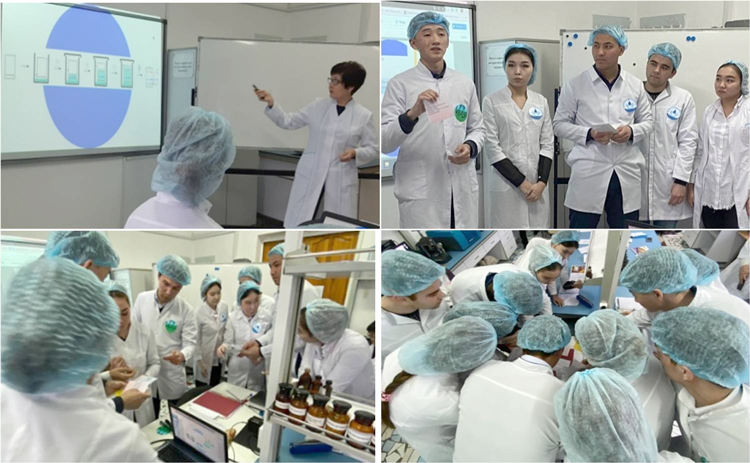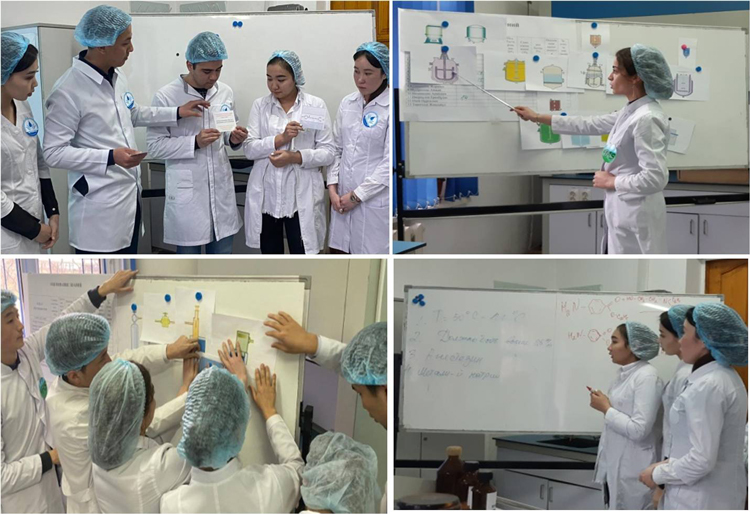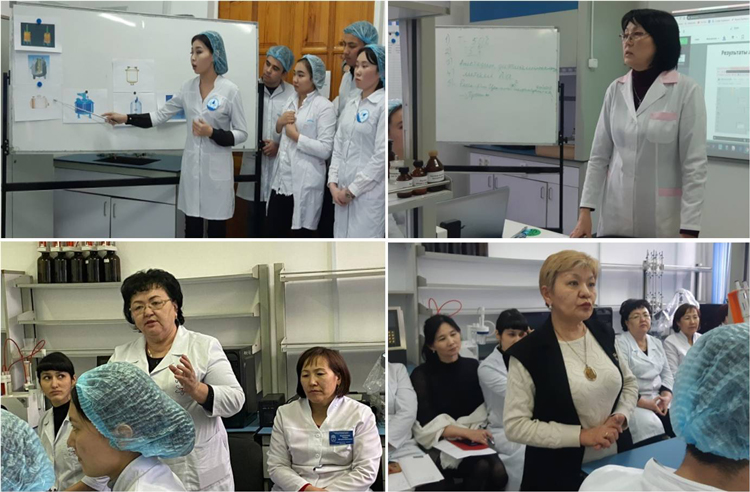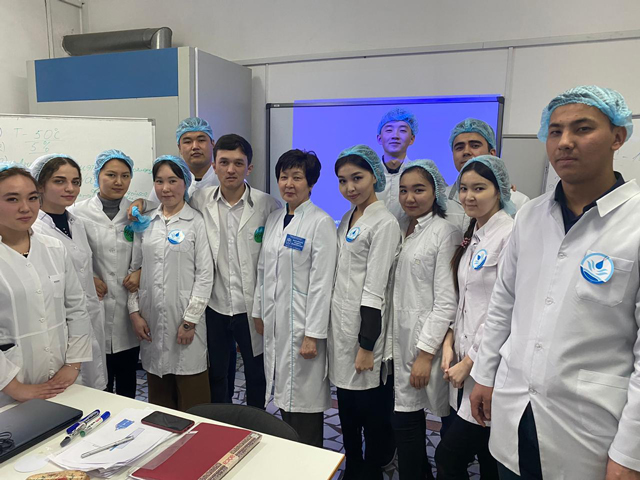Teaching students using the TBL method with Open Labyrinth elements
Innovative pedagogical teaching technologies guarantee the formation of deeper knowledge among students, which will allow them to carry out the professional activities of a general engineer of wide profile. Active teaching methods (ATM) are focused on a wider interaction of students not only with the teacher, but also with each other and the prevalence of student activity in the learning process. For this purpose, an open laboratory lesson was held at the Department of Pharmaceutical and Toxicological Chemistry in the discipline "Methods and Equipment for Pharmaceutical Analysis" for 4th year students in the specialty "Pharmaceutical Production Technology" using active methods - TBL with elements of Open Labyrinth.

Students had the goal to identify and analyze the purity of novocaine hydrochloride and streptocide with thin-layer chromatography method, for which the study group was divided into two teams.
The conducted laboratory lesson using active methods ensured active educational and practical activities of students, forming their ability to independently find, creatively process and use the necessary information from various sources for the synthesis and analysis of the drug, thereby effectively conducting the laboratory part of the lesson.

To consolidate the educational material, students were offered the task of assembling a chemical-technological scheme for the production of novocaine hydrochloride and streptocide, for the solution of which the knowledge obtained in the disciplines "General Chemical Technology" and "Chemistry and Technology of Synthetic Medicines" was necessary.
The methodology of situational-oriented training included both individual (Triventy testing) and group work of students using virtual production - work at «Open labyrinth», the essence of which was to solve the problem in virtual production. The use of situational tasks allowed to point students’ attention to individual problems and expand the educational process, contributed to its optimization and increased students' motivation to study this subject.

The use of team-based and situationally-oriented training is a good alternative to passive forms of conducting classes, develops communication skills, contributes to a better development of educational material, favors the development and improvement of both behavioral and professional skills.

 747 views
747 views
